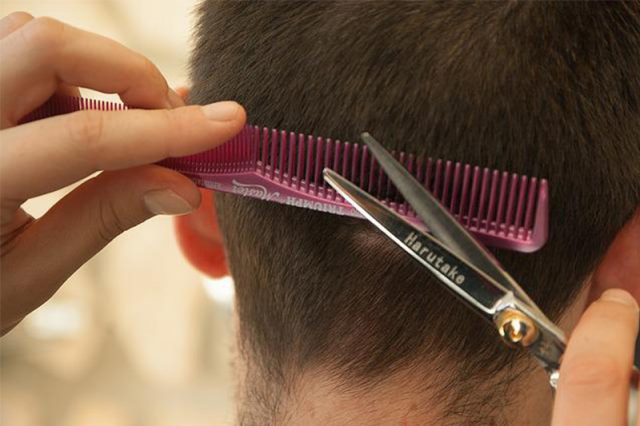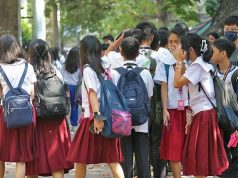Call for inclusivity in schools were once again made online after LGBTQIA+ students were required to cut their hair for face-to-face classes.
Miss Trans Global 2020 Mela Franco Habijan led this call on social media on Thursday, August 25.
Habijan also accompanied her post with photos of the students before and after their hair were cut.
“PILIPINAS, NAPAKASAKIT! Dahil dama ko na hanggang ngayon, hindi niyo pa rin kami tanggap,” she said.
“Hirap pa rin tayong yakapin ang kaisipang: ‘Transwomen are women. Transmen are men. Non-binary people are valid. People can have non-conforming gender expressions. And LGBTQIA+ people are people worthy to be and become,’” she added.
Habijan further voiced out: “Ano po bang mali sa aming buhok? Ano po bang mali sa isang transgender woman na gustong magsuot ng unipormeng pambabae o transgender man na hindi kumportableng mag-palda?”
She was reacting to a Facebook post of a beauty salon named “RR Valencia Salon for Men and Women” that shared photos of these students on August 24.
In the post, the salon’s management expressed a hopeful message to their young customers.
“Salamat sa tiwala niyo mga anakshies na gupitan kayo…alam kong pinaghirapan niyo magpahaba ng mga buhok niyo pero mas importante pa din ang sumunod sa school policies habang nag-aaral pa lang kayo,” the salon said.
“Maniwala kayo, kapag nakapagtapos kayo, kahit gaano pa kahaba nyo patubuin mga buhok niyo, kakayanin niyong makipagsabayan sa ibang tao kasi nakapagtapos kayo ng pag-aaral. Good luck mga anakshies!” it added.
Habijan cited the Department of Education’s gender-responsive policy, which supposedly took effect in 2017, in her tweet.
“Madaling sabihing sumunod sa rules. Pero hindi natin nakikita na may diskriminasyon sa kasalukuyang interpretasyon ng uniform policy. Madaling sabihing sumunod sa rules. Pero bakit hindi natin makuhang sundin ang Gender Responsive Basic Education Policy na existing sa DepEd?” she said.
The LGBTQIA+ rights advocate stated that she appealed to DepEd about this matter.
“PS. As of writing, we are still waiting for the response of DepEd to our appeal to reiterate Gender-Responsive Basic Education Policy. #EducationForAll,” Habijan said.
Both Habijan and the salon did not mention the schools and the names of the children involved.
Why inclusivity is important
In her statement, Habijan explained why it is important for the LGBTQIA+ community to express themselves through clothing and hair.
“Gender expression, through clothing, gives us comfort. Because when we are comfortable, it makes us confident. Comfort and confidence lead to productivity,” the beauty queen said.
“Imagine Philippine educational institutions that help build students’ and teachers’ confidence. Imagine productive Filipino students and teachers because they are comfortable and confident,” she added.
The haircut rule of some schools was also perceived to imply that the gender expression and identity of transgender/non-binary individuals are wrong, to begin with.
Habijan further highlighted that transgender teachers and students also experience prejudice inside educational institutions.
She reiterated that “education for all” therefore means schools should be inclusive for all LGBTQIA students and teachers.
“Education is for all. Let schools be inclusive. Let LGBTQIA+ students study. Let LGBTQIA+ teachers teach. Let LGBTQIA+ people live and be who they are!” Habijan said.
Last June, during the graduating season, Habijan gifted four graduating senior high trans students with a creative graduation photoshoot when their respective schools did not allow them to join their graduation ceremonies.
READ: Graduating senior high trans students gifted with creative grad photoshoot
DepEd NCR later issued a memorandum about this incident.
It affirmed the agency’s gender-responsive policy on respecting students’ gender expression.
READ: DepEd NCR affirms: Allow students to wear choice of clothes in graduation










